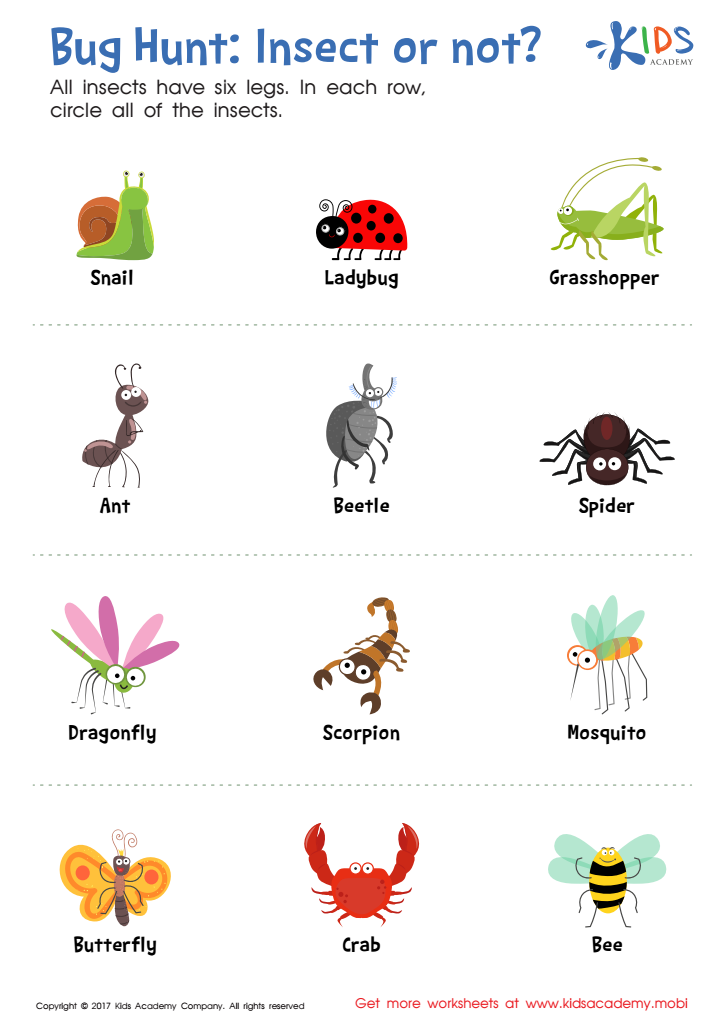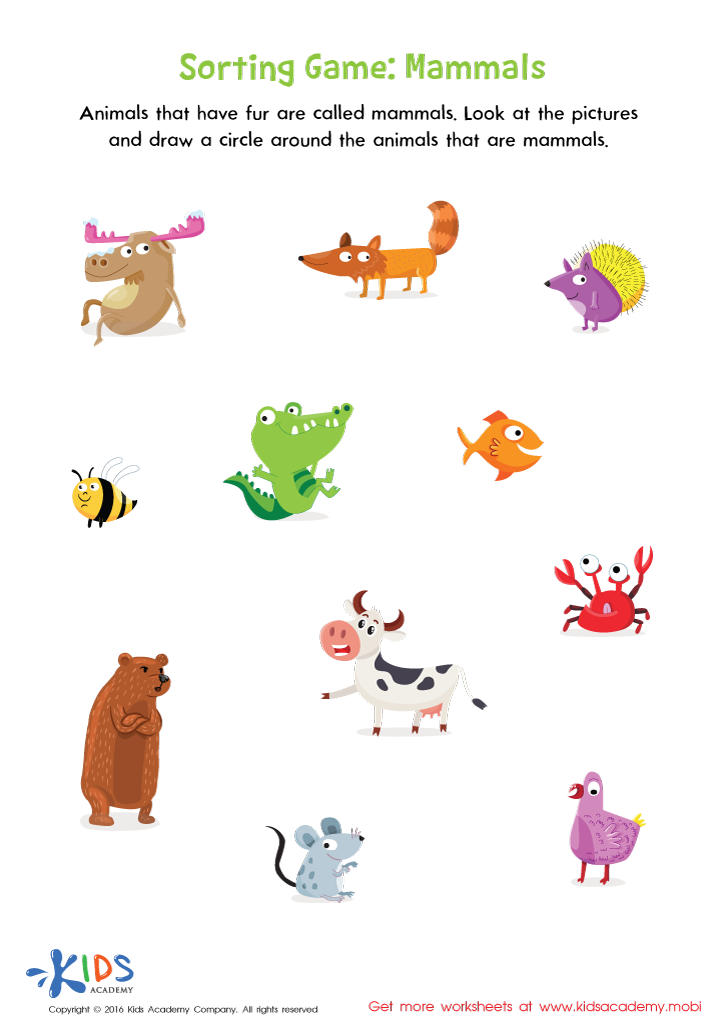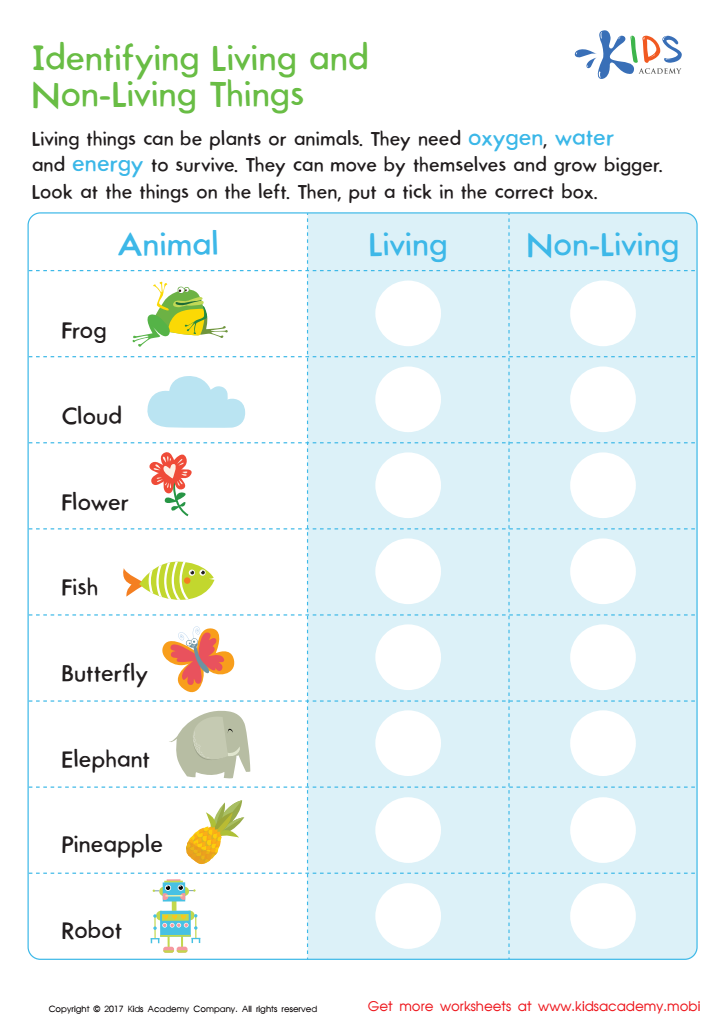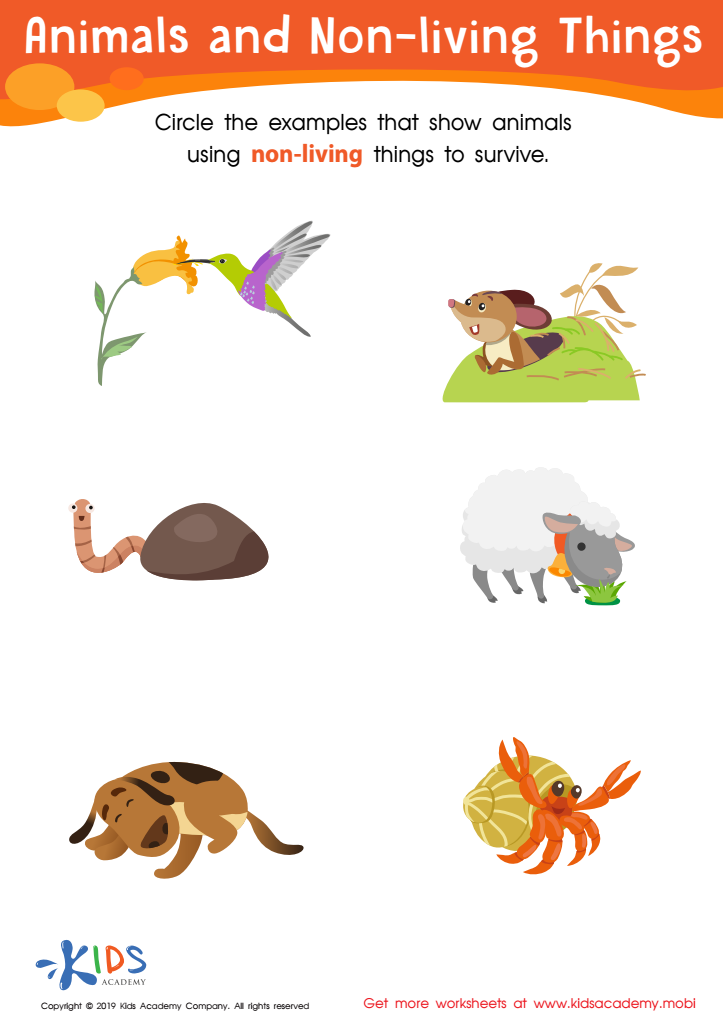Categorization skills Science Worksheets
5 filtered results
-
From - To
Unlock the potential of young minds with our 'Categorization Skills Science Worksheets.' These expertly crafted worksheets are designed to enhance critical thinking and organizational abilities in young learners. By engaging in activities that involve grouping, sorting, and classifying various scientific elements, children will learn to draw connections and understand relationships within the natural world. Ideal for early-grade students, these worksheets support foundational science skills while making learning fun and interactive. Inspire a lifelong love for science as kids explore, categorize, and master essential concepts through our captivating educational resources. Start your child’s journey to scientific discovery today!


Sorting Animals in 3 Groups Worksheet




Mammals Sorting Worksheet


Identifying Living or Non–living Worksheet


Animals and Non-Living Things Worksheet
Parents and teachers play a crucial role in the early development of children's categorization skills in science, which are foundational for learning and understanding the world. Categorization is the mental ability to group objects or ideas based on shared characteristics. In science education, this skill helps children organize and make sense of complex information by recognizing patterns and relationships.
When children practice categorizing, they are not only improving their cognitive abilities but also enhancing their observational skills and critical thinking. For example, being able to categorize animals by their habitats or plants by their lifecycle characteristics helps children understand broader concepts about ecosystems and biology. This understanding forms the building blocks for more advanced scientific learning.
Furthermore, strong categorization skills enable children to make connections between subjects, fostering interdisciplinary learning. For instance, recognizing that certain animals and plants belong to specific ecosystems can bridge understanding in both science and geography.
By nurturing these skills, parents and teachers support academic achievement and spark curiosity. Moreover, categorization aids in problem-solving abilities, as children learn to classify and analyze information efficiently. Overall, fostering strong categorization skills in science prepares children for a lifetime of learning, equipping them with the tools necessary for academic success and informed, critical thinking.

 Assign to the classroom
Assign to the classroom











